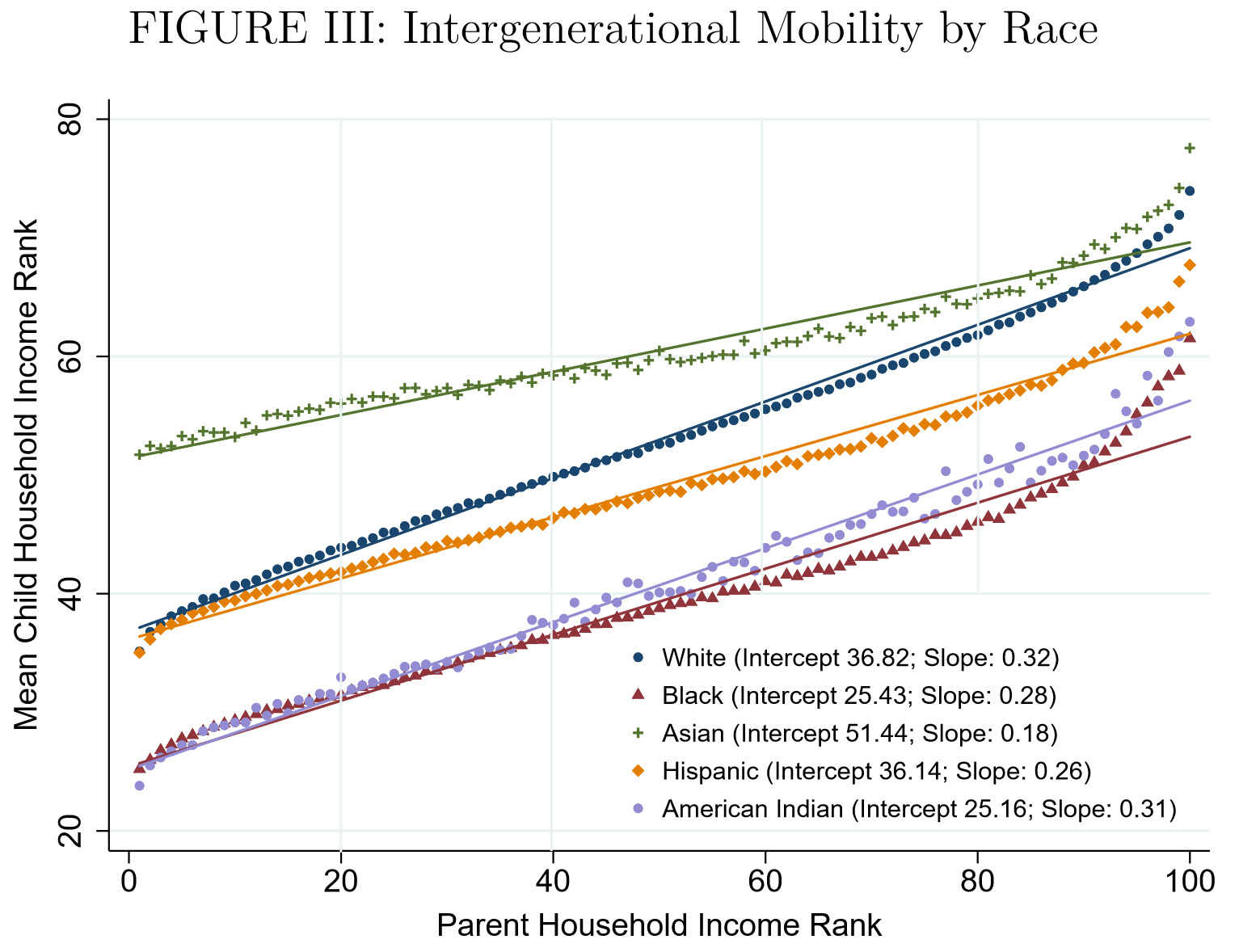A team of researchers using a massive dataset has published a new paper about intergenerational mobility among American children. The basic question is whether children generally end up with higher or lower incomes than their parents. Here’s the chart:

Take a look at the dark blue dots, which are for white kids. If their parents were in the 20th percentile of income, children are mostly likely to be around the 45th percentile: the kids have done better than the parents. At the 80th percentile, children are most likely to be around the 65th percentile: the kids have done worse than the parents. This kind of reversion to the mean is fairly common.
Now take a look at the red triangles, which are for blacks kids. At the 40th percentile, the kids are most likely to end up around the 35th percentile. At the 80th percentile, the kids are likely to end up around the 50th percentile. At nearly every income level, black kids are likely to do worse than their parents—and far worse than similar white kids.
So what do the authors conclude?
- The black-white gap is almost entirely among men. On a wide variety of measures—wages, college education, etc.—black and white women have similar levels of intergenerational mobility.
- Among families with similar incomes, family characteristics such as marital status, education, and wealth explain very little of the black-white income gap.
- The same is true for differences in ability.
- The gap is mostly environmental: Boys who grow up in certain neighborhoods—those with low poverty rates, low levels of racial bias among whites, and high rates of father presence among low-income blacks—show much smaller gaps. Black boys who move to such areas at younger ages have significantly better outcomes, demonstrating that racial disparities can be narrowed through changes in environment.
As a result of this research, the authors suggest that interventions aimed at improving the conditions of a single generation won’t be very effective. The same is true of policies that focus on reducing patterns of residential segregation. The key is achieving racial integration within neighborhoods:
Our results suggest that efforts that cut within neighborhoods and schools and improve environments for specific racial subgroups, such as black boys, may be more effective in reducing the black-white gap. Examples include mentoring programs for black boys, efforts to reduce racial bias among whites, or efforts to facilitate social interaction across racial groups within a given area.
This paper should give ammunition to everyone. Conservatives will point to the better results in neighborhoods where fathers stay around. Liberals will point to the better results in neighborhoods with low poverty rates. In theory, everyone will agree that reducing racism and improving social interaction between blacks and whites is important.













